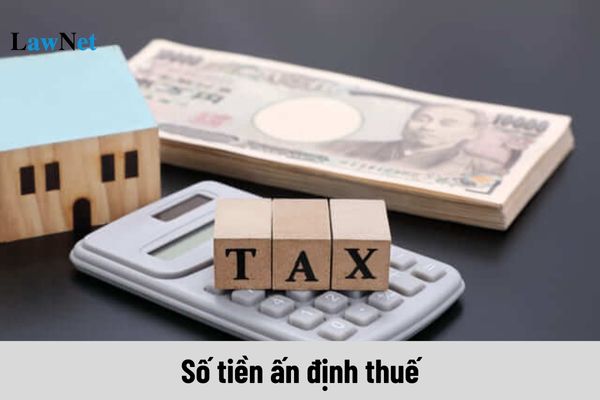What should taxpayers do if they do not concur with the tax imposed by tax authorities in Vietnam?
What should taxpayers do if they do not concur with the tax imposed by tax authorities in Vietnam?
Based on Article 54 of the Law on Tax Administration 2019, the regulations are as follows:
Responsibilities of taxpayers in paying the tax imposed by tax authorities
Taxpayers must pay the tax imposed by tax authorities according to the tax handling decision of the tax administration agency; in case they do not concur with the tax amount determined by the tax administration agency, taxpayers must still pay that tax amount and have the right to request the tax administration agency to explain or file complaints, lawsuits regarding the tax liability imposition. Taxpayers are responsible for providing dossiers and documents to substantiate their complaints or lawsuits.
If taxpayers do not concur with the tax amount determined by the tax administration agency, they must still pay that tax amount.
Simultaneously, taxpayers have the right to request the tax administration agency to explain or file complaints, lawsuits regarding the tax liability imposition.
Taxpayers must provide dossiers and documents to substantiate their complaints or lawsuits.

What should taxpayers do if they do not concur with the tax imposed by tax authorities in Vietnam? (Image from Internet)
What documents must taxpayers present to not be imposed tax liability in Vietnam?
Based on Article 14 of the Decree 126/2020/ND-CP, the regulations are as follows:
Cases of tax liability imposition
Taxpayers will be subjected to tax liability imposition by the tax authority in the following cases:
Not registering for taxpayer as stipulated in Article 33 of the Law on Tax Administration.
Not declaring tax or improperly declaring tax as stipulated in Article 42 of the Law on Tax Administration.
Not submitting supplementary tax dossiers at the request of the tax administration agency or submitting supplementary tax dossiers that are incomplete, untruthful, or inaccurate regarding the tax calculation basis to determine the payable tax amount.
Not reflecting or improperly reflecting the figures on accounting books to determine tax obligations.
5. Not presenting accounting books, invoices, documents, and other necessary materials related to the determination of elements forming the tax calculation basis; not determining the payable tax amount within the stipulated time frame or after the tax inspection period, tax audit at the taxpayer's headquarters has ended.
Not complying with the tax inspection decision within 10 working days from the date of decision issuance, except for cases where the inspection period is postponed as regulated.
Not complying with the tax audit decision within 15 days from the date of decision issuance, except for cases where the audit period is postponed as regulated.
Buying, selling, exchanging, and accounting the value of goods and services not according to the normal market transaction value.
Buying, exchanging goods, services using illegal invoices, using legal invoices illegally for transactions where goods and services exist genuinely as determined by investigative, auditing, and inspecting authorities and have been declared for revenue, cost tax calculation.
Showing signs of absconding or dispersing assets to avoid tax obligations.
Engaging in transactions not in line with the economic substance, not in line with the actual occurrence for the purpose of reducing the taxpayer's tax obligations.
Failing to comply with the regulations on declaration obligations, determination of related-party transaction pricing, or not providing information as regulated regarding tax management for enterprises involved in related-party transactions.
Taxpayers must present accounting books, invoices, documents, and other necessary materials related to the determination of tax calculation basis elements; failure to determine the payable tax amount within the stipulated time frame or after the tax inspection period, tax audit at the taxpayer's headquarters will result in tax liability imposition by the tax authority.
What are the procedures for tax liability imposition in Vietnam?
Based on Article 16 of the Decree 126/2020/ND-CP, the regulations are as follows:
Authority, procedures, and decision for tax liability imposition
- Authority for tax liability imposition
The General Director of the General Department of Taxation; the Director of the Tax Department; the Head of the Tax Sub-Department have the authority to determine tax.
- Procedures for tax liability imposition
a) When determining tax, the tax authority must notify the taxpayer in writing about the tax liability imposition and issue a decision on the tax liability imposition. The tax liability imposition decision must clearly state the reasons for tax liability imposition, tax liability imposition basis, tax imposed by tax authorities, and deadline for tax payment.
b) In case the tax authority determines tax through tax inspection or audit, the reasons for tax liability imposition, tax liability imposition basis, tax imposed by tax authorities, and deadline for tax payment must be recorded in the tax inspection, audit minutes, and the tax handling decision of the tax authority.
c) In case taxpayers are determined to pay tax according to regulations, the tax authority must impose administrative penalties and calculate the interest on late tax payment according to legal regulations.
The tax liability imposition follows the procedures as outlined:
- The tax authority must notify the taxpayer in writing about the tax liability imposition and issue a tax liability imposition decision. This decision must clearly state the reasons for tax liability imposition, the tax liability imposition basis, the tax imposed by tax authorities, and the deadline for tax payment.
- If the tax authority determines tax through tax inspection or audit, the reasons for tax liability imposition, tax liability imposition basis, tax imposed by tax authorities, and deadline for tax payment must be recorded in the tax inspection, audit minutes, and the tax handling decision of the tax authority.
- If taxpayers are determined to pay taxes according to regulations, the tax authority must impose administrative penalties and calculate the interest on late tax payment according to legal regulations.

